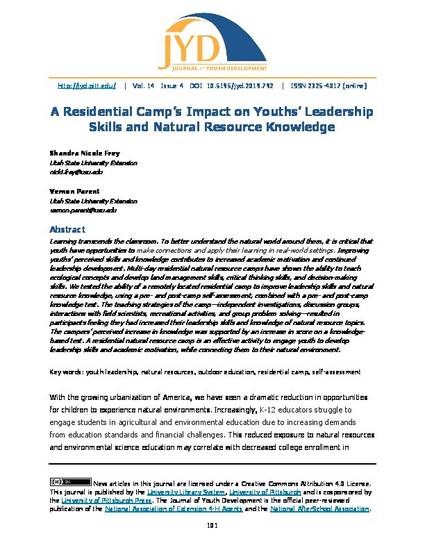
Learning transcends the classroom. To better understand the natural world around them, it is critical that youth have opportunities to make connections and apply their learning in real-world settings. Improving youths’ perceived skills and knowledge contributes to increased academic motivation and continued leadership development. Multi-day residential natural resource camps have shown the ability to teach ecological concepts and develop land management skills, critical thinking skills, and decision-making skills. We tested the ability of a remotely located residential camp to improve leadership skills and natural resource knowledge, using a pre- and post-camp self-assessment, combined with a pre- and post-camp knowledge test. The teaching strategies of the camp—independent investigations, discussion groups, interactions with field scientists, recreational activities, and group problem solving—resulted in participants feeling they had increased their leadership skills and knowledge of natural resource topics. The campers’ perceived increase in knowledge was supported by an increase in score on a knowledge based test. A residential natural resource camp is an effective activity to engage youth to develop leadership skills and academic motivation, while connecting them to their natural environment.
